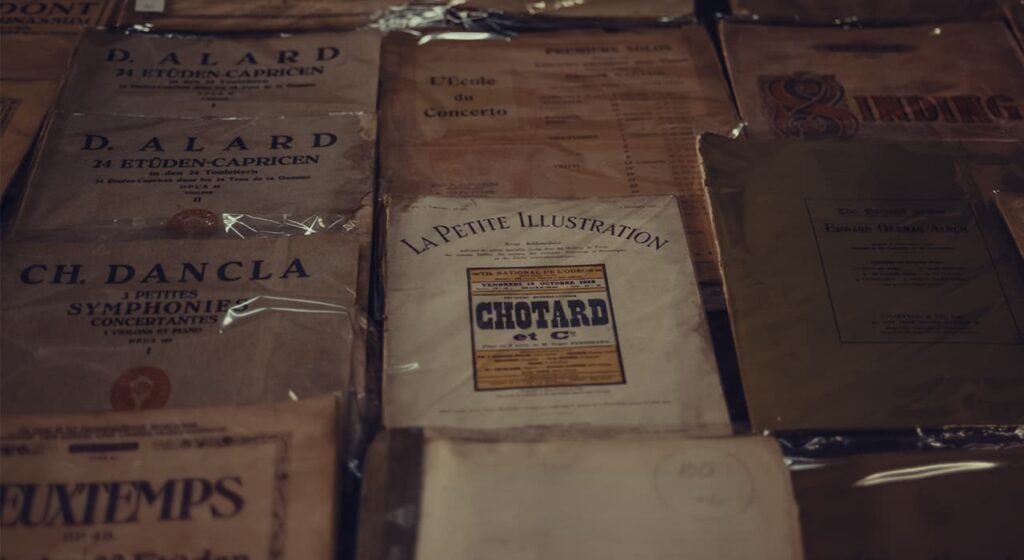According to Easton’s Bible Dictionary, Jubal was called by the Bible the inventor of musical instruments (Genesis 4:21). The Hebrews had a great deal to do with music. Their entire history and literature provides ample evidence for this. After the Flood the first mention of music is found in Laban’s account of Jacob’s interview (Genesis 31:27). After their triumphant crossing of the Red Sea, Moses and the children of Israel sang their song of deliverance (Exodus 15). But the period of Samuel, David, and Solomon was the golden age of Jewish music as well as Jewish poetry. Now for the first time music was systematically cultivated. It was an important part of the instruction in the schools of the prophets (1 Samuel 10:5). A class of professional singers now arose (2 Kings 19:35; Eccl. 2:8). Solomon’s temple, however, was a great school of music. Large groups of trained singers and instrumental musicians were constantly used for its services (2 Kings 6:5; 1 Chr 15:16; 23; 5; 25: 1-6). In private life music also seems to have occupied an important place among the Jews (Eccl. 2: 8; Amos 6: 4-6; Is. 5:11, 12; 24: 8, 9; Ps. 137; Jer. 48.) : 33; Luke 15:25).
Music and theater scholars who study the history and anthropology of Semitic and early Judeo-Christian culture have also found common connections between theater and musical activities in the classical Hebrew cultures with those of the later Greek and Roman cultures. A common area of activity is “a social phenomenon called ektania,” a form of prayer consisting of a series of invocations or entreaties. The Journal of Religion and Theatre notes that among the earliest forms of the litany “the Hebrew litany was accompanied by a rich musical tradition. Although Genesis 4.21 refers to Jubal as “the father of all who play the harp and the whistle,” the Pentateuch says almost nothing about the practice and teaching of music in young Israel. Then, in 1 Samuel 10ff, a curious thing happens. “In the biblical text one finds,” writes Alfred Sendray, “a sudden and inexplicable growth of large choirs and orchestras composed of carefully organized and trained musical groups that would have been virtually unthinkable without lengthy methodical training. This has led some scholars to believe that the prophet Samuel was the patriarch of a school that trained not only prophets and saints, but also performers of sacred rites. This public music school, perhaps the earliest in recorded history, was not limited to the priestly class-it is how the shepherd boy David appears on the stage as King Saul’s minstrel.
Early music is the music of the European classical tradition from the fall of the Roman Empire in 476 A.D. until the end of the Baroque era in the mid-18th century. Music during this vast span of time was extremely diverse, encompassing many cultural traditions within a wide geographic area; many of the cultural groups from which medieval Europe emerged already had musical traditions of which little is known. In the Middle Ages, these cultures were united by the Roman Catholic Church, and its music served as the focal point of musical development during the first thousand years of the period.
